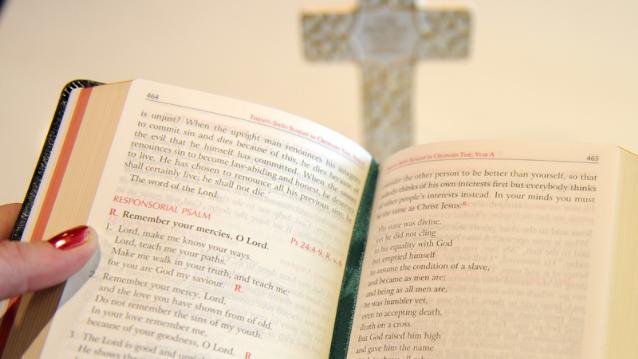|
| Towards Healing Next for Commission
The Sky News
December 7, 2013
http://www.skynews.com.au/national/article.aspx?id=931650
 |
It would be a miracle if it worked - a pastoral-cum-compensation scheme run by, for want of a better word, the accused.
The process certainly isn't working as intended, which is one reason the Catholic Church's Towards Healing scheme for abuse victims will be under the microscope at a national inquiry for two weeks starting on Monday.
The introduction of Towards Healing in 1996 was a watershed moment in the Catholic Church's approach to dealing with child sexual abuse within the institution.
In a frank submission to the Royal Commission into Institutional Responses to Child Sexual Abuse, the church admits that for a decade it struggled to frame a response to the emerging revelations.
Its 207-page assessment and defence of Towards Healing can be found on the royal commission's webpage.
The submission sets out the development and practice of a process that, in effect, requires abuse victims to approach a church body, make a complaint, have it and themselves assessed by a church-appointed facilitator, and then accept or reject a compensation offer based on going rates in Australia.
The church's insurance company is allegedly the main driver of the process, according to a submission from Broken Rites, a key voluntary organisation representing abuse survivors.
'We have come to the conclusion that for many victims who enter mediation in good faith, the outcome is pre-determined because of private agreements that have been entered into by the Bishops and Heads of Religious Orders and their insurer Catholic Church Insurance Ltd (CCL),' it says. Broken Rites wants the activities of CCL and its links to church programs examined because of perceived conflicts of interest.
But that is just one problem, say Broken Rites and others.
Melbourne-based academic and lawyer Judy Courtin in her 71-page submission drew on PhD research from her study Sexual Assaults and the Catholic Church: Are Victims Finding Justice?
'Towards Healing was designed by the church and continues to be managed by the church, and, contrary to the church's rhetoric, Towards Healing was also designed for the church,' Ms Courtin concludes from three years of research and interviews.
'Victims are, yet again, the abused and exploited players in an unconscionable process.'
In the body of her submission Ms Courtin gives an example of one man who was not ready, emotionally and psychologically, to meet the provincial of the Christian Brothers.
The facilitator, appointed by the church, was insisting on a meeting, despite the victim's plea he needed more time.
Ms Courtin writes that the victim told the facilitator: 'I'm still in a bad spot. I'm having trouble being around people I love, let alone the representative of the church that abused me as a kid ... (I have a) fear that I'll fly across that table and rip that collar and that throat out of the bloke that's sitting there.
'I'm frightened for him and I'm frightened for myself. I need more time ... (I'm) in a really, really vulnerable spot.'
Ms Courtin says the facilitator, a registered psychologist, told the victim Towards Healing would withdraw its support and cease counselling sessions until such time that he agreed to have the meeting.
She quotes the victim: 'He knew that I wasn't far off killing myself ... the facilitator ... had no words of understanding or sympathy or empathy. Nothing... to him ... I was another one off the list.'
The findings seem a far cry from the seven principles the church committed to when it set up Towards Healing.
The principles were truth, humility, healing for the victims, assistance to other persons affected, a just response to those who are accused, an effective response to those who are guilty of abuse, and the prevention of abuse.
Yet frequent criticism is that the church protected clergy pedophiles and therefore should not be trusted to investigate those crimes.
Ms Courtin says Towards Healing has failed and should be dismantled.
Not everyone agrees.
Among the 20 submissions made public by the royal commission are some from people who have worked in the church system and argue there is a danger of overlooking the good achieved by the process.
The church says in its submission it recognises Towards Healing is not perfect.
'In some cases the criticism goes to the policy, in other cases to its implementation,' it says. It acknowledges some of the criticism 'may well have force', should be examined and changed where appropriate .
Who knows, the royal commission may yet clear the way for a miracle.
|